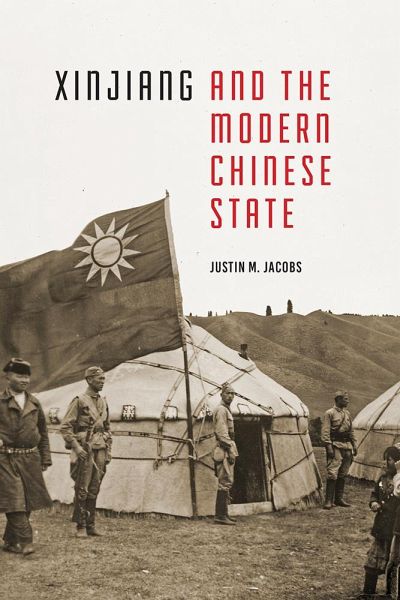
Xinjiang and the Modern Chinese State
Versandkostenfrei!
Versandfertig in 1-2 Wochen
34,99 €
inkl. MwSt.

PAYBACK Punkte
17 °P sammeln!
This book presents a new narrative of modern Chinese political history as viewed through the lens of Han officials tasked with governing Xinjiang, a region inhabited by Kazaks, Kirghiz, Uighurs, Tajiks, and Mongols--and the last "colony" of the former Qing empire to remain under continuous Chinese rule during the twentieth century. By foregrounding the collective responses of Chinese and other contemporary imperial elites to the growing threat of national determination across Eurasia, it argues for a reconceptualization of the modern Chinese state as a "national empire," one marked by a turbul...
This book presents a new narrative of modern Chinese political history as viewed through the lens of Han officials tasked with governing Xinjiang, a region inhabited by Kazaks, Kirghiz, Uighurs, Tajiks, and Mongols--and the last "colony" of the former Qing empire to remain under continuous Chinese rule during the twentieth century. By foregrounding the collective responses of Chinese and other contemporary imperial elites to the growing threat of national determination across Eurasia, it argues for a reconceptualization of the modern Chinese state as a "national empire," one marked by a turbulent and protracted transition from ethno-elitist to ethno-populist institutions of difference. The author shows how "strategies of difference," a cardinal feature of the ethnopolitical landscape in late Qing, Republican, and Communist Xinjiang, were molded by, and shaped in response to, rival platforms of ethnic difference peddled by China's geopolitical competitors across Inner and East Asia. Instead of focusing merely on the abstract discourse of the non-Han frontier put forth by Chinese intellectuals and policymakers along the eastern seaboard, this study is the first attempt in English to narrate the ethnopolitical history of a Chinese borderland during the twentieth century from the perspective of those Han officials who wielded actual power on the ground. A riveting narrative tracks Xinjiang political history through the Bolshevik revolution, the warlord years, Chinese civil war, and finally large-scale Han immigration in the People's Republic of China. It is written primarily for scholars of twentieth-century Chinese history, China's ethnic borderlands, historians of comparative empire (in particular Russian/Soviet historians), and scholars of Central and Inner Asia.












